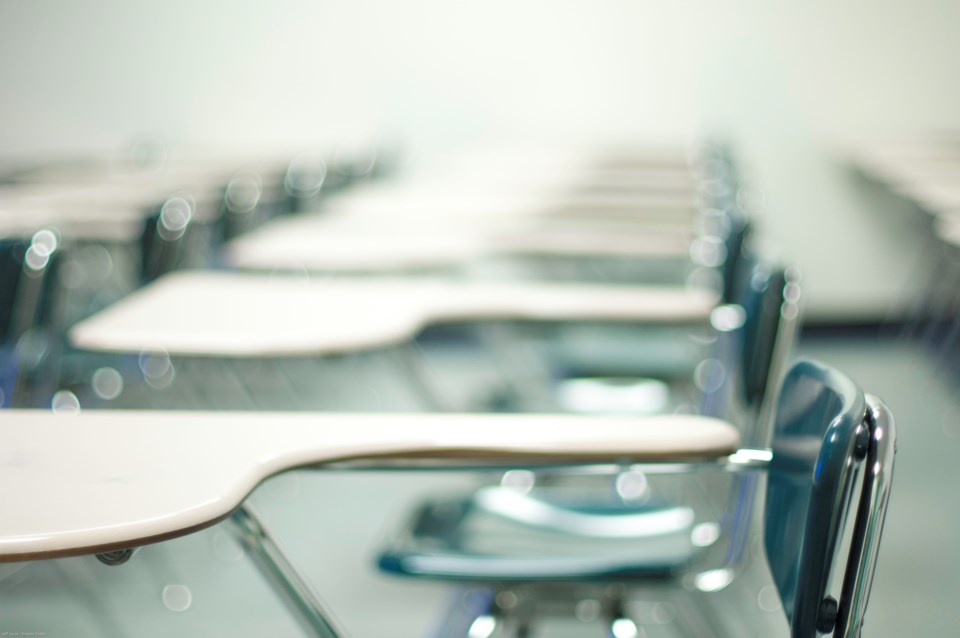What are schools for?
I think their purpose goes beyond simply making sure kids can read, write and do arithmetic, but where does their mandate end? It’s a difficult question.
Maimonides, a 12th-century Jewish scholar, said, “Give a man a fish and you feed him for a day; teach a man to fish and you feed him for a lifetime.”
This would imply that schools exist to make sure children can one day sustain themselves, either by fishing or growing food themselves, or by working in a job that allows them to buy the things they need to live. Is that enough? Should the purpose of schools be simply to prepare students for work? To my mind, that’s not all there is.
For instance, when I wrote a few weeks ago about banning phones in schools, I noted that rather than outright banning phones it would be good for schools to teach kids the highest and best use of phones.
Things like learning when it’s appropriate to have your phone out or be texting and when it isn’t, how to avoid becoming addicted to using your phone, or how to know which uses of technology are okay in academia and which are not.
Dr. Martin Luther King Jr., the pre-eminent American civil rights leader who was assassinated in 1968, said, “The function of education is to teach one to think intensively and to think critically. Intelligence plus character – that is the goal of true education.”
This adds critical thinking and character to the roles of education, goals which I agree schools should be striving for, but which also become more abstract and difficult to measure.
This is where initiatives like anti-bullying and SOGI arise and I do think they make a difference in the acceptance of others, which in theory should unite our increasingly divided society.
Both King and Maimonides leave out a few things I wish I had learned in school but didn’t.
A few that come to mind are: how to file income taxes, how to change a car tire or how to do minor repairs on a toilet or a light fixture. Or how about basic nutrition, meal planning (and yes, I took foods!) or managing a family budget. These basic skills are essential for all adults.
Some of the things I did learn but have never applied outside of academia include square dancing, algebra and how to cram for tests.
Readers might think I included algebra here because I didn’t like math, but that’s untrue. I loved algebra because it was like solving a puzzle, but I have not found any application for it outside of school.
American author Alvin Toffler said, “The illiterate of the future will not be the person who cannot read. It will be the person who does not know how to learn.”
While I agree with this idea, I don’t think learning how to learn means memorization or studying to regurgitate facts. I think it’s more about exploring ideas to build upon them.
I spent countless hours memorizing facts, both in high school and university, but remember very few of them now. I am a person who loves to learn new things, but I don’t always retain all the details. A love of learning has given me both my profession and my favourite hobby: reading.
Aristotle’s quote resonates with me and is particularly useful for our times. “It is the mark of an educated mind to be able to entertain a thought without accepting it,” the ancient Greek philosopher said.
Just because someone disagrees with us does not make them an enemy and there is no better place to begin learning this than in a safe environment like a school. Opposing ideas should be welcomed and encouraged. It will help with learning how to learn and with keeping an open mind.
So, what are schools for? As you can see above, their mandate is no small thing.
Schools take our wee kids at just five years old and hold them, shape them, and influence them until they are at least 18. They have to teach the basics, life skills, and critical thinking skills. It’s no easy task, and it’s among the most significant in our society.
South African leader Nelson Mandela gets the final word, for his quote is something I’ve always believed in. “Education is the most powerful weapon which you can use to change the world.”
Tracy Sherlock is a freelance journalist who writes about education and social issues. Read her blog or email her [email protected].
📣 Got an opinion on this story or any others in Richmond? Send us a letter or email your thoughts or story tips to [email protected].
📲 To stay updated on Richmond news, sign up for our daily headline newsletter.
💬 Words missing in article? Your adblocker might be preventing hyperlinked text from appearing.



